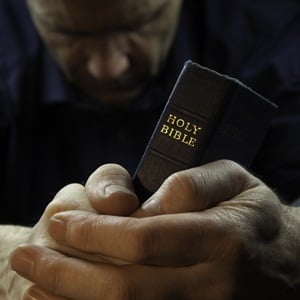
In a study of older adults, religious participation was correlated with better mood.
People in the study who often attended religious services were less likely to report symptoms of depression during the two-year study, researchers found.
And those with signs of depression at the start of the study were less likely to be depressed two years later if they engaged in frequent private prayer.
Is religion good for you?
This kind of so-called "observational" study, where researchers have no control over their study subjects, can't prove cause and effect. It can't say, for example, whether people became depressed because they didn't participate in religious activities, or whether the depression itself was the reason they didn't participate, or whether something else was at play.
"It would be wrong to say 'religion is good for you' http://www.health24.com/Lifestyle/Ageing-well/I-want-to-live-forever-20140818 this paper is not saying that," Dr. Gary Kennedy, who directs the Division of Geriatric Psychiatry at Montefiore Medical Centre in New York, told Reuters Health by phone.
Read: Religion linked to higher wellbeing
Kennedy, who was not involved in the new study, added, "But from a clinical perspective, what I ask my patients is, 'Have you abandoned or have you given up your religious practice in association with your depression?'"
He said that if the answer is "yes", he'd encourage the person to go back to their faith.
Take religious needs into account
The authors of the study say doctors should be aware of their patients' religious needs and that improving access to places of worship may be helpful for religious older adults.
"Frequent service attendance is associated with more social connections, which can reduce isolation and loneliness, two risk factors for depression," Corina Ronneberg told Reuters Health in an email.
Ronneberg is a graduate student and researcher with the Department of Gerontology at the John E. McCormack Graduate School of Policy and Global Studies of the University of Massachusetts Boston. She led the study, which was published in The Gerontologist.
"Private prayer may serve to cultivate hope and activate cognitive resources that eventually counter depression," Ronneberg said.
Ronneberg and her colleagues analysed survey responses from the large Health and Retirements Study conducted by the University of Michigan. Altogether they had data from 7,732 people: 1,992 who were depressed and 5,740 who were not depressed in 2006.
Measuring depression
Depression was measured with an eight-symptom scale – participants were determined to be depressed if they reported three or more symptoms of depression.
The researchers found that depressed and non-depressed participants had similar religious affiliations, but non-depressed participants attended worship services frequently: 45 percent did, compared to 37 percent of depressed individuals.
Read: Religion affects psychiatric treatment
Also, Ronneberg said, "The group of respondents who were not depressed at baseline were less likely to be depressed at follow-up two years later if they attended religious services frequently."
Participants from the group who were depressed at baseline were also more likely to have recovered from depression at follow-up if they engaged in more frequent private prayer.
Work on religion
Ronneberg said family members should ask their parents and loved ones if their religious needs are being met and work with them to meet those goals.
"If an older adult (is) interested in attending services in the community but cannot do so because of deteriorating health, perhaps family members can accommodate them by accompanying them to services," she said.
Ronneberg said places of worship could also reach out to older adults and try to work with them to meet their religious needs. Also, she said, health care providers should be aware of older adults' religious needs and, if necessary, develop plans of care that meet those needs.
Read: Religion replenishes self-control
Kennedy pointed out, "The people who had the highest religious practice were less likely to develop depression – that doesn't mean that religion protects you, but it means that that kind of activity is associated with lower levels of depressive symptoms."
He added, "I would not say to a depressed person, 'You need to go to church.' I would say to a depressed person 'if you've given up your devotional activities or attendance, you need to get back to doing that – you need to restore the socially supportive activities.'"
Read more:
Religion shouldn't prevent kids' medical care
Depression in the elderly
Catching depression early lowers heart attack risk
Image: Man praying holding a Holy Bible from Shutterstock
See breaking news and the hottest health tips before anybody else by joining South Africa’s biggest and best health community, like health24 on Facebook now!




 Publications
Publications
 Partners
Partners















